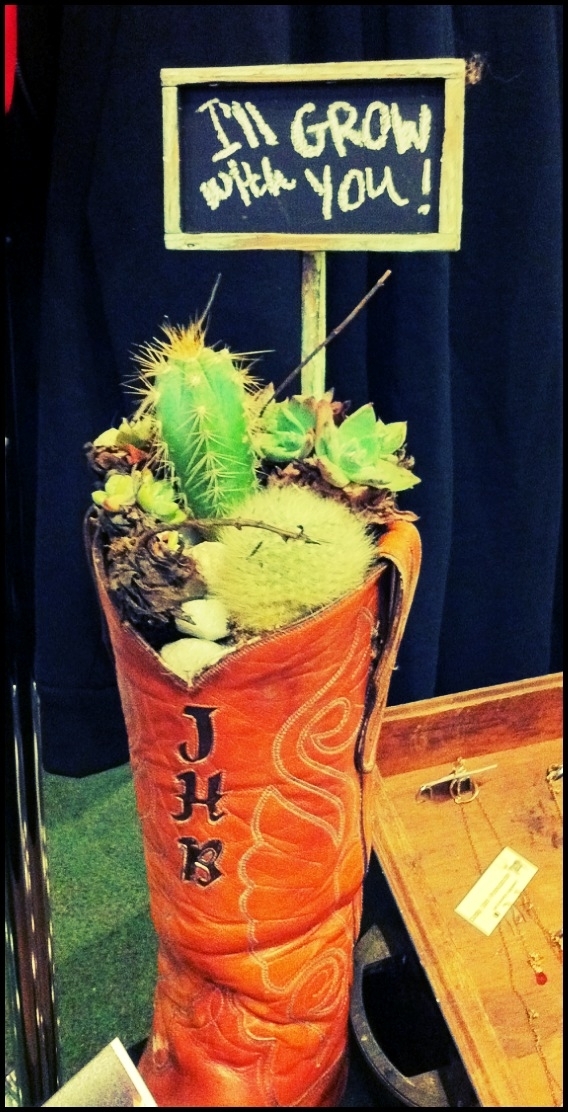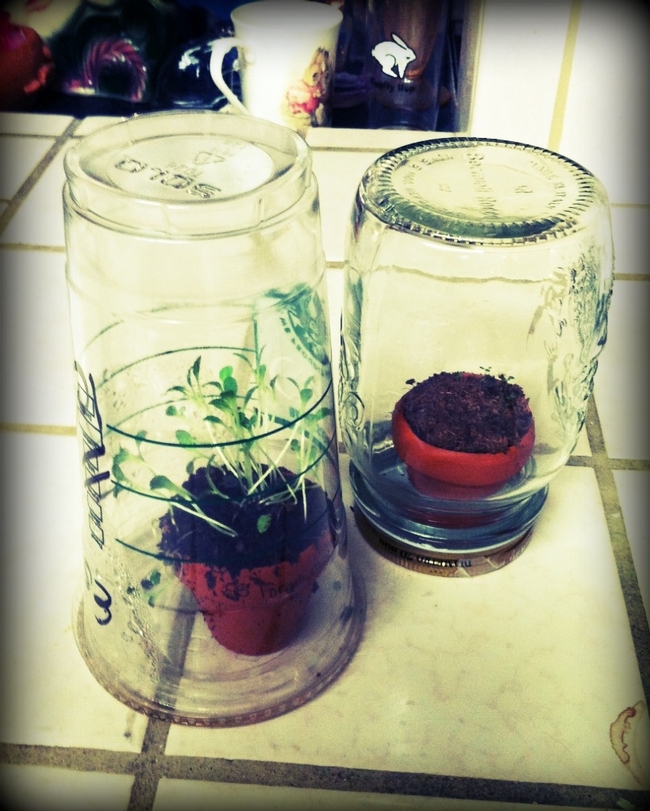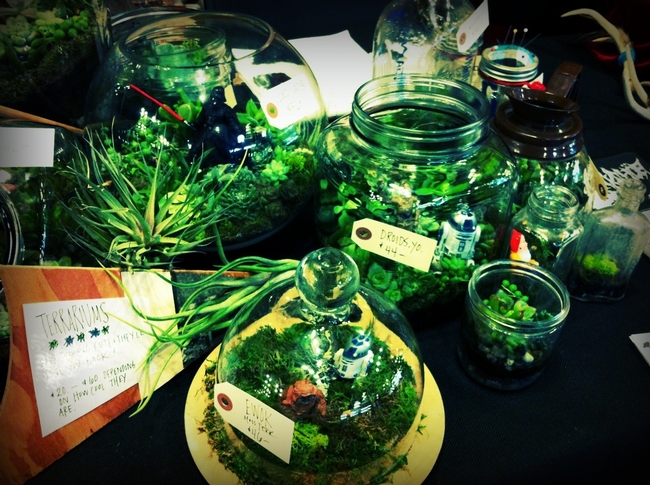Gardening can provide exercise and reduce stress. Gardens make your surroundings more beautiful and serene, and vegetable and fruit gardens can provide healthy food for you and your family. The downside to gardening is that it can be expensive and toxic to you and the environment. However, with a little awareness and better choices, you can reduce the use of toxic chemicals, have a greener garden, and even reduce costs by recycling every day items. Here are a few tips for going green:
- Reduce use of harsh or toxic chemicals. Look for natural or less toxic methods to enrich the soils and controls garden predators. Healthy plants are naturally more resistant to diseases.
- Consider your gardening spaces with conservation in mind. Choose an overall design that conserves water and works well with the existing landscape and weather zone.
- Figure out the microclimates in your yard by season. Where does the sun hit during the summer/winter? Where are the shady spots? Which way does the winds blow and when? What other exiting factors may affect your garden such as, a pool, pond, or shade from large trees or buildings. These factors can make a huge difference on the survival of certain plants.
- Water-wise Gardening. Select native and drought tolerant and pest resistant plants whenever possible. Check out www.solanosaveswater.org for a list of local plants as well as turf replacement rebates.
- Compost yard waste. Contact your local Master Gardener’s for home composting information. If you can’t create compost pile your yard, then put all your green waste in your green cart. Most cities require that green waste be turned into compost and diverted from landfill. Several local landfills also provide free mulch to residents. Check with your local garbage company or landfill to see if they are providing this service.
- Reuse or Recycle. So many items can be reused for the gardening. Try using egg cartons to start seedlings or 2 liter bottles, with the bottoms cut off, to cover seedlings – miniature green houses, complete with ventilation. You just remove the screw cap if it starts to get too warm. Reuse plastic “to go” cups or jars for mini- window green houses.
- Be creative! Need a planter or a few bricks for your backyard? Try yard sales, second hand stores, look on FreeCycle.com, the “free” section of the local paper, or Craig’s List for items that might be turned into a planter or maybe used as stepping stones.
- Become informed! Do research online, join garden chat group, a local gardening group, or contact the Solano County Master Gardener’s to learn more about Green Gardening Tips!
Look around, there are lots of examples of creative recycling. I recently saw at the San Francisco Renegade Craft fair, beautiful terrariums made out of recycled glass containers with little “toys” such as Star Wars characters inside as well as a “boot” planter!
What have you done to be creative – have you recycled or given new life to in your garden? Tell me about it.
Attached Images:

Cactus and succulents in a boot. (photos by Esther Blanco)

Recycled cup and jar.

Recycled containers for terrariums.